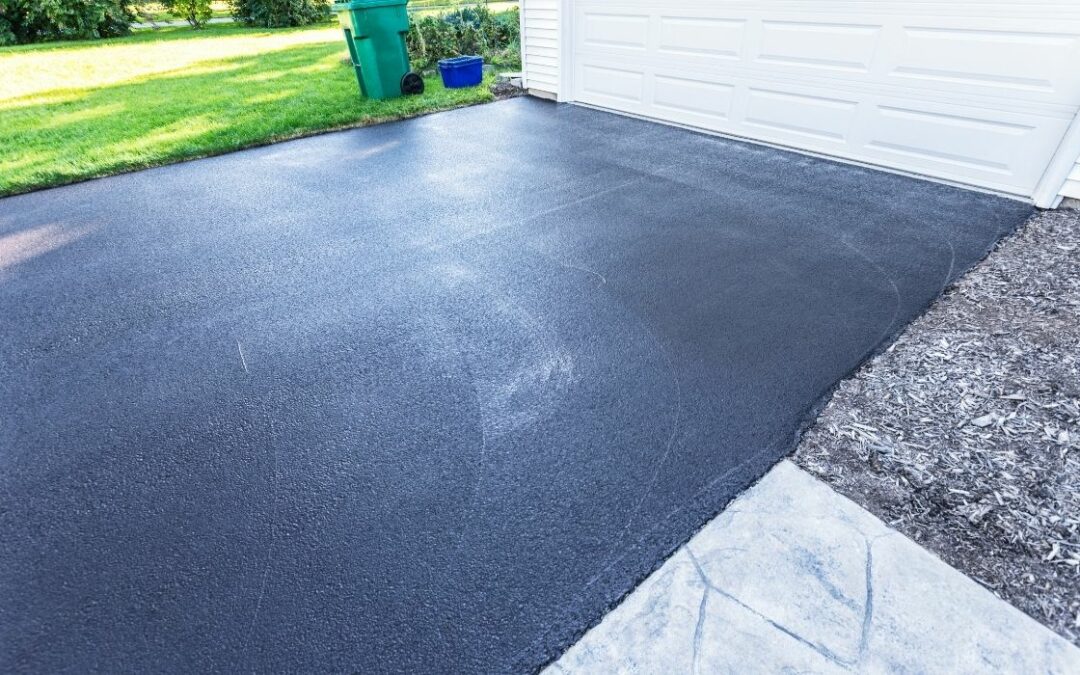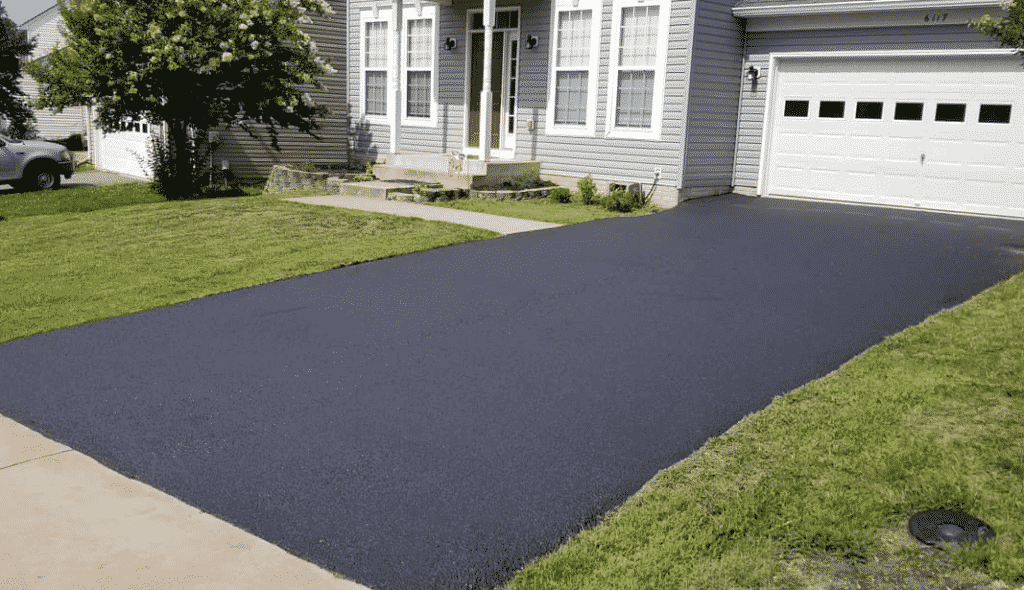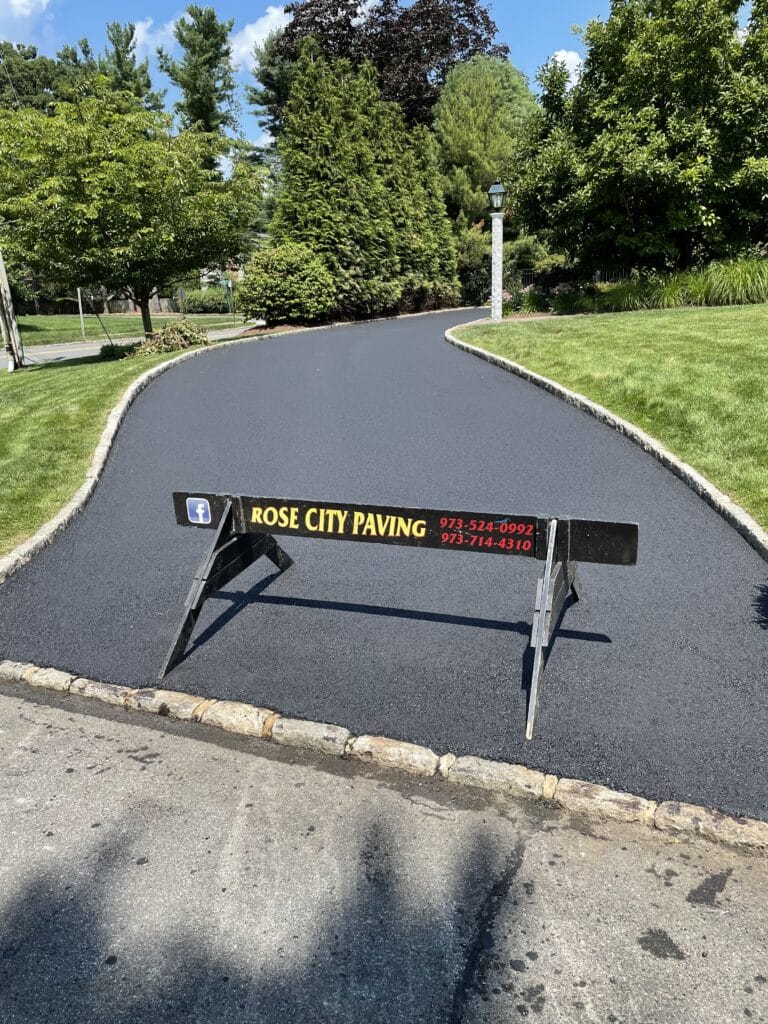Release the Potential: Regrading and Asphalt Sealing for Commercial Spaces
Release the Potential: Regrading and Asphalt Sealing for Commercial Spaces
Blog Article
Warm Mix Asphalt: A Lasting Service for Sidewalk
Warm Mix Asphalt (HMA) has arised as a leading sustainable selection for sidewalk services, supplying a myriad of ingenious modern technologies and ecological advantages. As the demand for eco-friendly building and construction methods grows, exploring the subtleties of HMA's sustainability can offer beneficial insights into the future of pavement remedies.
Ecological Advantages of Warm Mix Asphalt

Furthermore, Hot Mix Asphalt helps to reduce urban warmth island impacts. Its dark color soaks up sunlight, reducing the quantity of heat mirrored back right into the atmosphere contrasted to lighter-colored pavements. This can reduce ambient temperatures in city areas, reducing the need for air conditioning and eventually minimizing energy intake.
Additionally, Hot Mix Asphalt adds to improved stormwater administration. Its porous nature allows water to infiltrate the sidewalk and charge groundwater materials, decreasing drainage and the risk of flooding. These ecological advantages make Hot Mix Asphalt a sustainable option for paving roadways and highways.
Power Performance in HMA Manufacturing
Is power effectiveness a crucial consider the manufacturing of Warm Mix Asphalt (HMA)? Absolutely. Energy plays a substantial function in the manufacturing of HMA, impacting both price and ecological sustainability. One vital aspect of energy effectiveness in HMA manufacturing is the use of cozy mix asphalt (WMA) innovations (hot mix asphalt). WMA permits for the mixing and positioning of asphalt at reduced temperatures compared to standard hot mix asphalt, resulting in lowered energy intake during manufacturing. This process not just lowers gas usage yet also reduces greenhouse gas emissions, making it a much more eco friendly alternative.
Additionally, developments in plant technologies have actually led to even more energy-efficient HMA production processes. By maximizing power use in HMA manufacturing, the sector can lower its carbon impact while keeping premium pavement products.
Recyclability of Hot Mix Asphalt
The recyclability of Hot Mix Asphalt (HMA) is a critical aspect of its sustainability and long-term environmental impact. HMA is just one of the most recycled materials in the USA, with over 100 million lots of reclaimed asphalt sidewalk (RAP) being recycled each year in new sidewalk construction. Recycling HMA uses several ecological advantages, such as reducing the demand for virgin products, lowering power consumption throughout manufacturing, and lowering the quantity of waste sent out to land fills.
The process of reusing HMA entails grating the existing sidewalk, crushing it right into smaller items, and mixing it with new aggregate and asphalt binder to develop a recycled mix. This recycled mix can frequently perform along with or perhaps better than traditional HMA, while calling for fewer resources and creating lower greenhouse gas exhausts. By incorporating RAP right into new sidewalk projects, road agencies can preserve all-natural resources, lower costs, and minimize the ecological footprint of road building and upkeep tasks. On the whole, the recyclability of HMA plays a considerable function in promoting sustainable methods within the sidewalk industry.

Long-Term Efficiency of HMA
Asphalt sidewalks show resilience and resilience over an extensive period, mirroring the lasting efficiency of Hot Mix Asphalt (HMA) The long life of HMA can be credited to its ability to withstand rush hour loads, rough weather, and the effects of aging. Researches have shown that well-designed and appropriately built HMA pavements can last for 20 years or even more with regular maintenance. The trick to taking full advantage of the long-lasting performance of HMA depends on using high-grade products, complying with finest techniques in building, and executing reliable maintenance techniques. Proper water drainage, regular inspections, and timely repair services are vital for maintaining the structural honesty of HMA pavements over time. Furthermore, advancements in HMA technology, such as the usage of polymer-modified binders and warm mix asphalt, have actually even more boosted the sturdiness and longevity of HMA sidewalks. By focusing on top quality building and maintenance techniques, HMA proceeds to show itself as a sustainable and cost-efficient service for lasting sidewalk infrastructure.

HMA: Longevity and Sustainability
Showing both resilience and sustainability, Hot Mix Asphalt (HMA) has come to be a cornerstone in the construction of durable sidewalk frameworks - hot mix asphalt. HMA's resilience comes from its ability to stand up to heavy lots, rough weather, and high web traffic volumes, making it a dependable selection for highways, freeways, and flight terminal paths. The composition of HMA, which commonly consists of description accumulations, binder, and filler, plays an essential function in improving its longevity and resistance to deterioration
Additionally, HMA's sustainability lies in its recyclability and energy-efficient manufacturing process. The capacity to reuse reclaimed asphalt sidewalk (RAP) in new HMA combinations reduces the need for virgin materials and lessens the environmental influence of pavement building and construction and maintenance. Additionally, the power efficiency of generating HMA exists in its reduced mixing temperature levels contrasted to other sidewalk materials, causing lowered power usage and greenhouse gas exhausts.
Verdict
Finally, warm mix asphalt (HMA) supplies a lasting service for pavement with its eco friendly attributes. HMA's recyclability, power efficiency in manufacturing, and long-term longevity make it an environment-friendly option for road building. By saving all-natural resources, decreasing waste, and lowering greenhouse gas discharges, HMA plays a vital function in promoting sustainability in infrastructure growth. Its ability to mitigate urban warm island results even more emphasizes its significance in developing eco conscious and resilient sidewalk visit this page systems.
HMA is one of the most recycled materials in the United States, with over 100 million bunches of reclaimed asphalt sidewalk (RAP) being recycled yearly in new sidewalk construction.The procedure of recycling HMA entails crushing the existing pavement, crushing it right into smaller sized pieces, and blending it with brand-new aggregate and asphalt binder to develop a recycled mix.Asphalt sidewalks show durability and durability over an extended period, mirroring the lasting efficiency of Hot Mix Asphalt (HMA) Additionally, innovations in HMA innovation, such as the usage of polymer-modified binders and cozy mix asphalt, have additionally enhanced the resilience and durability of HMA sidewalks. The capability to recycle redeemed asphalt sidewalk (RAP) in new HMA blends Related Site decreases the need for virgin materials and lessens the ecological effect of pavement building and construction and upkeep.
Report this page